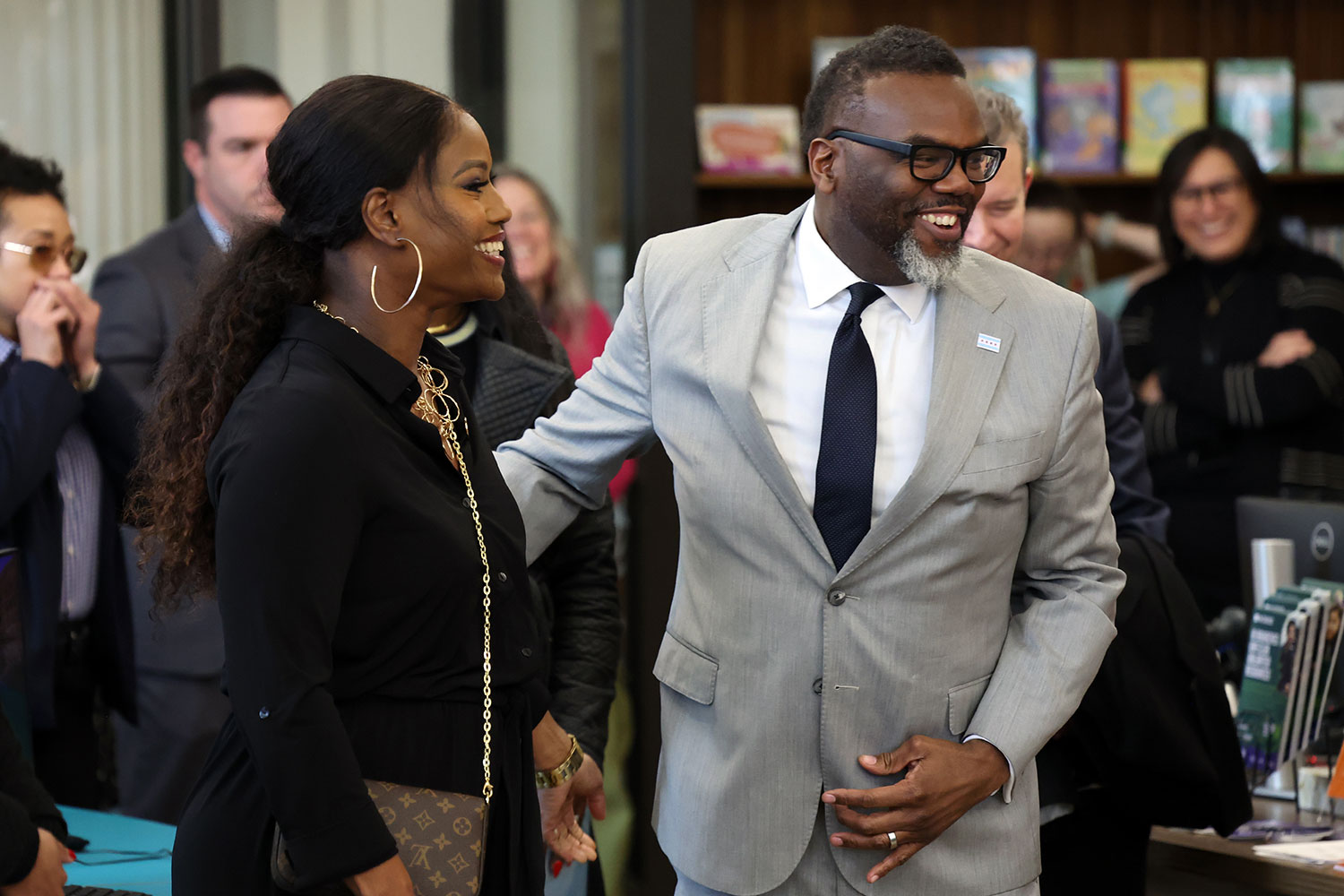Once upon a time, there was a hip young social studies teacher with dreadlocks. He taught at an elementary school that served a public housing project, and his lessons came from a radical, developing nations perspective. While teaching a unit on South Africa, he talked about the apartheid system’s “political decisions that criminalize Blackness” and “lack of investment, particularly around housing.” His students could relate.
After a few years, the hip young teacher moved on to a selective enrollment high school. The students were better. The facilities were better. But the teacher was disturbed by the disparity with his old school. After less than a year, he quit teaching to become a union organizer. He wanted to make sure every student had a fully funded education.
“Having taught in a neighborhood school and a selective enrollment school, it really highlighted the stratification that exists where there are students who are capable and bright and could have more fulfillment if those schools were invested in,” he said.
As an organizer, the hip young teacher helped lead a teachers’ strike. He protested the closing of 50 schools on the South and West sides. Then he led a hunger strike to save a neighborhood high school. After 34 days, the school district compromised, agreeing to leave the high school open as an arts academy.
Angered by the school closings, the union decided to build a political movement. Instead of fighting City Hall, it would take over City Hall. The hip young teacher ran for office. First, he was elected to the county board, with the help of the board president, herself a former history teacher. Then he decided to run for mayor. The union endorsed him. It donated $2 million to his campaign and sent out its army of door knockers to spread the word about him. In an upset, the hip young teacher won, against an opponent with a better-known name who outspent him 2-1.
That, in brief, is the story of how Brandon Johnson became mayor of Chicago. It’s important to understand where he came from, because the mayoralty hasn’t changed him. He’s changed the mayoralty. Johnson is not a politician. He’s still that hip young teacher and radical union organizer, and he’s running the city with that point of view.
“Stacy Davis Gates made Brandon Johnson,” a now-retired TV newsman told me just after the 2023 election, naming the president of the Chicago Teachers Union, for which Johnson once worked, and which endorsed his campaign. “Stacy Davis Gates owns Brandon Johnson.”
When I talked to that same newsman last week, he said, “I’ve had no cause to reconsider; it’s becoming more and more evident all the time.”
And that was even before the entire seven-member Board of Education resigned. In their place, Mayor CTU will appoint a set of lackeys, brownnosers, and apple polishers who will carry out the Chicago Teachers Union’s program: firing CEO Pedro Martinez and taking out a $300 million high-interest loan to pay for teacher raises.
In a post on X, the union applauded the resignations — and blamed Martinez. Johnson is the union and the union is Johnson. Neither acts without consulting the other.
“Unfortunately, this news reflects the ongoing instability created by the district’s CEO,” the post read. “While we finally have a mayor working to transform our schools, this CEO continues to say ‘no’ to progress. Resistance to progress in Chicago is nothing new. But our solidarity keeps us strong. We’ve seen the CEO focus more on his personal PR than delivering on the Board’s five-year plan for our schools. Instead of advocating for full funding and fair contracts, the CEO has worked to hide his plans for furloughs, layoffs, and cuts—plans that hurt our schools and our students.”
This is all happening in the midst of the first campaign for an elected school board — a cause for which Johnson lobbied in Springfield, when he was a hip young organizer. The idea was to take the power to appoint school board members away from the mayor and give it to the people. But in the last few months he has that power, Johnson is using it as brazenly as any mayor in the city’s history.
The Chicago Teachers Union is running candidates in all 10 districts in this school board election. Since the mayor is allied with the union — rather, since he is the union — could his power play damage the chances of CTU-backed candidates among voters who don’t want to see the teachers amass too much power? It very well could. As we said, though, the mayor is not a politician. He’s a radical teacher turned radical organizer turned radical officeholder, and he’s doing what all radicals do once they obtain power: He’s shaking up the system — whether anyone else likes it or not.



